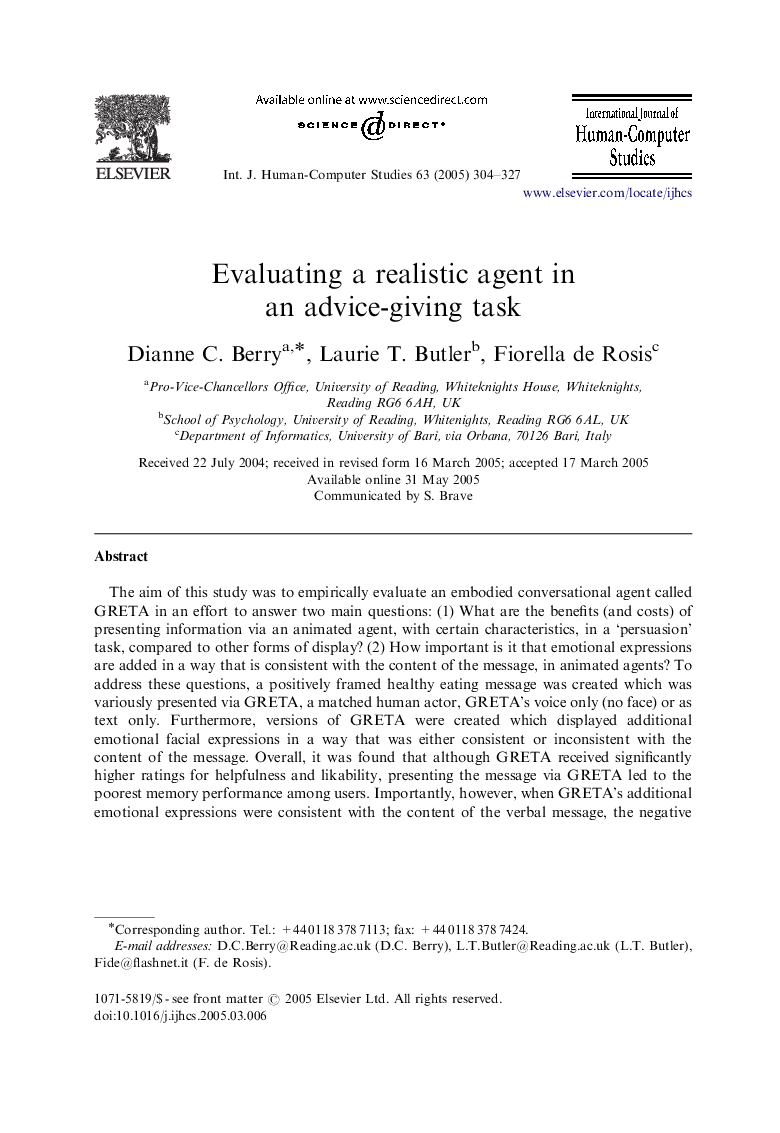| Article ID | Journal | Published Year | Pages | File Type |
|---|---|---|---|---|
| 9652480 | International Journal of Human-Computer Studies | 2005 | 24 Pages |
Abstract
The aim of this study was to empirically evaluate an embodied conversational agent called GRETA in an effort to answer two main questions: (1) What are the benefits (and costs) of presenting information via an animated agent, with certain characteristics, in a 'persuasion' task, compared to other forms of display? (2) How important is it that emotional expressions are added in a way that is consistent with the content of the message, in animated agents? To address these questions, a positively framed healthy eating message was created which was variously presented via GRETA, a matched human actor, GRETA's voice only (no face) or as text only. Furthermore, versions of GRETA were created which displayed additional emotional facial expressions in a way that was either consistent or inconsistent with the content of the message. Overall, it was found that although GRETA received significantly higher ratings for helpfulness and likability, presenting the message via GRETA led to the poorest memory performance among users. Importantly, however, when GRETA's additional emotional expressions were consistent with the content of the verbal message, the negative effect on memory performance disappeared. Overall, the findings point to the importance of achieving consistency in animated agents.
Keywords
Related Topics
Physical Sciences and Engineering
Computer Science
Artificial Intelligence
Authors
Dianne C. Berry, Laurie T. Butler, Fiorella de Rosis,
